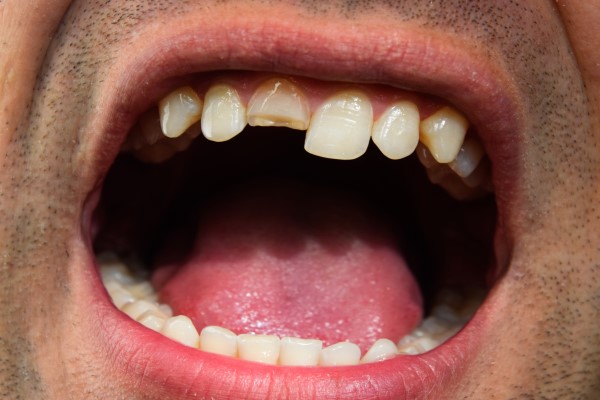Getting Dental Care for a Broken Tooth

A person can get a broken tooth from a cavity, a strong blow to the face, or a hard bite. It may come from a sports injury, a brawl, or a collision. Once a tooth breaks, you tend to hide your smile or laugh. It is a good thing that there are solutions to a broken tooth. If you want to find out about the types of dental care for your broken tooth, here are your options.
Dental sealants
This restorative method can repair holes in the teeth. It protects the broken tooth. Because of this, it serves as a strong wall against harmful bacteria. Dentists usually place dental sealants in the back parts of premolars and molars. Dental sealants serve as raincoats that ward off food particles from the broken tooth. This prevents bacteria from attaching to teeth and producing corrosive acids.
Dental bonding
Some chips may be small while others large. Dental bonding can treat either one. If the pulp is at risk, the dentist will put a sedative bandage on this part of the tooth. Then, the dentist will clean the tooth well. Etching the tooth with an acidic liquid or gel will make the surface rough. This allows the bonding to stick better to the broken tooth.
The dentist applies a thin coating of adhesive to the tooth. The bonding substance follows. After shaping the bonding over the broken tooth, the dentist will harden it with curing light. Then, the dentist will shape and polish the tooth, making it blend with the patient’s natural teeth.
Dental crown
A broken tooth is vulnerable to more damage and infection. Dental crowns cover teeth and stay stable. Each crown is thicker than other restorations. Porcelain or PFM (porcelain-fused-with-metal) are the common materials for dental crowns. These materials blend well with the patient’s natural teeth.
Porcelain veneers
These thin shells are popular restorative solutions. If the patient has a broken tooth, a porcelain veneer can cover it. The dentist will need to shave off a thin layer of enamel to allow strong adhesion for the veneer. Once the veneer is in place, the imperfections of the tooth will not be visible anymore. Each veneer is custom-fit to match the neighboring natural teeth.
Dental implant
Damage to the broken tooth may reach the gum and then penetrate the bone. When this happens, the tooth cannot survive anymore. The dentist needs to extract the tooth and prepare the site for dental implants. Titanium rods will replace the dental roots. After osseointegration, the dentist will attach a porcelain crown to reinstate the tooth.
Root canal
The tooth’s damage might extend to the pulp and the nerves in the roots. When this happens, the dentist must perform a root canal to remove the pulp. Then, the dentist fills the space with strengthening material. To keep the tooth intact, a dental crown will cover the tooth.
You have several dental care options to restore your broken tooth
If you have a broken tooth, getting the right treatment for it is a priority. Restoring your tooth will help keep it safe from further injury and infection. The mentioned treatment options for your broken tooth must happen right away. Setting an urgent appointment with your dentist can help expedite the process.
Are you considering saving a broken tooth in the Huntsville area? Get more information at https://www.smilesbydesignhuntsville.com.
Check out what others are saying about our dental services on Yelp: General Dentist in Huntsville, AL.
Related Posts
A general dentist shared some ways to help prevent bad breath. This is a topic no one wants to discuss. Bad breath happens to everyone at one point or another. If you take proper precautions, you can avoid having bad breath. We should openly talk about this taboo topic. The more we talk about it, the…
General dentistry commonly handles toothaches among other dental concerns. While this is a routine issue that is easily treatable, it is common for patients to have several questions about it and what they should do if they experience it. Here we will answer some commonly asked general dentistry questions and advice on the best ways…
Dentists recognize many types of toothaches. Each tooth pain carries a different intensity and meaning, and each type is caused by a different dental issue. You may not know what kind of ache you have right now. Understanding it, and getting in touch with a licensed dentist to alleviate your pain, are important steps in…
Dental professionals typically recommend visiting the general dentistry office for checkups regularly. Those who visit the dentist are less prone to developing a serious oral condition that may need extensive procedures, and that is just one of the many benefits of routine dental checkups. Continue reading to find out more about the importance of visiting…
